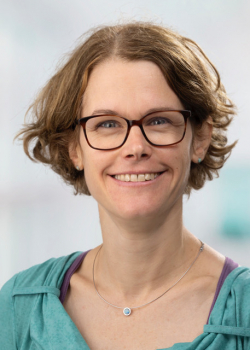For this feature, we ask our female PIs three questions – about the SFB, their career, their balancing of work and private life, gender issues in general etc.
Which aspects of SFB 1381 do you like best?
I moved to Freiburg at the end of 2017 and was soon included in the preparation of the SFB application. Coming from outside Germany and knowing no one in Freiburg, this opportunity allowed me to connect with others who shared similar research interests and helped me integrate into the local academic community. This SFB builds a dynamic community of individuals who share similar perspectives and ways of thinking, not only in research but also more broadly, making it an incredibly enriching environment. Looking back, this was an invaluable experience that made my transition to Freiburg very smooth. I am in regular contact with several SFB PIs, not only for research collaborations but also other matters.
How do you answer the question: …”and who is looking after the kids?”
My husband and I share childcare responsibilities equally. When we had our children in Switzerland during my postdoc, it was common to return to work after 14 weeks of maternity leave. This worked for us because my husband also reduced his working hours, and we arranged childcare through a mix of shared parenting, daycare, and support from the grandmother. However, when I moved to Vienna, I encountered different social expectations. Enrolling children in daycare at an early age was considered unusual, and I felt an implicit pressure to stay home longer. At the same time, the fact that my husband and me shared childcare responsibilities went largely unnoticed. The issue is not just about individual choices but about broader structural and cultural expectations. Many people assume that long maternity leave is always beneficial, but this is not necessarily true for every family. While it can offer some mothers more time at home if they wish, it can also create pressure to stay away from work longer than they might want or can afford. At the same time, fathers often take shorter parental leave or none at all, reinforcing the outdated idea that mothers should be the primary caregivers. This imbalance affects both parents, limiting fathers’ involvement in childcare while impacting mothers’ career progression. This highlights the need for more flexible and accepted childcare options for all parents, so every family can decide what works best for them without social pressure.
What is the most important advice you would give researchers with young kids?
“Do it the way you want to do it, not the way others think you should do it.”
This was invaluable advice I received from Jeff Schatz, a renowned biochemistry professor from the Biozentrum in Basel, when I started my own lab. At that time, my children were just eight months and two years old, and after a year, I nearly left science, not because of my own abilities, but due to the intense expectations from colleagues and society. There was constant pressure to fit a predefined ‘norm’, both in the lab, where this meant, for instance, staying late, and outside, where it meant facing judgment for enrolling my children in daycare at an early age. Such structural and social expectations need to be looked at more closely to make sure everyone can have real freedom of choice, regardless of gender, family responsibilities, or personal circumstances. This freedom is essential not only for women with children but also for individuals with diverse lifestyles and life paths, allowing everyone to organize their work and private life in the way that suits them best.
 Claudine Kraft began her early research career in Vienna and Zürich, and in 2017, she became a W3 professor at the University of Freiburg. Her research centers on autophagy, the cellular waste disposal system. In our SFB, she leads project B10 and is also a member of the management board, in addition to co-heading the central project Z03. She is a founding member of “Women in Autophagy,” a network empowering women and other under-represented gender identities in the field of autophagy.
Claudine Kraft began her early research career in Vienna and Zürich, and in 2017, she became a W3 professor at the University of Freiburg. Her research centers on autophagy, the cellular waste disposal system. In our SFB, she leads project B10 and is also a member of the management board, in addition to co-heading the central project Z03. She is a founding member of “Women in Autophagy,” a network empowering women and other under-represented gender identities in the field of autophagy.









